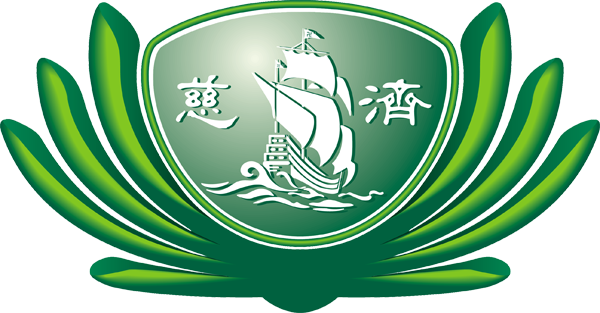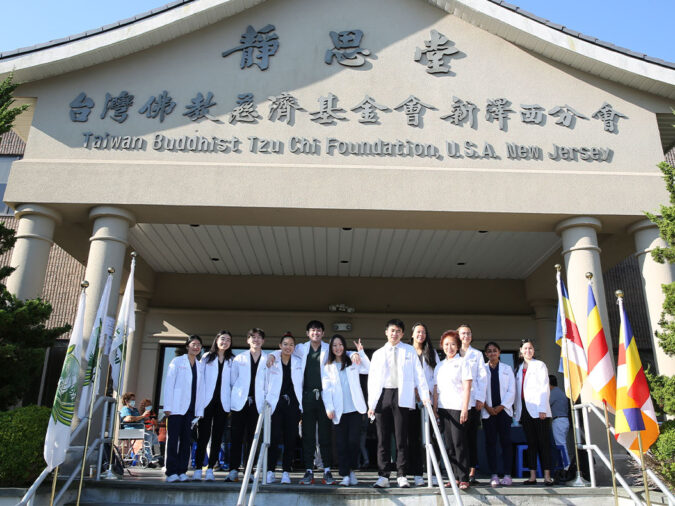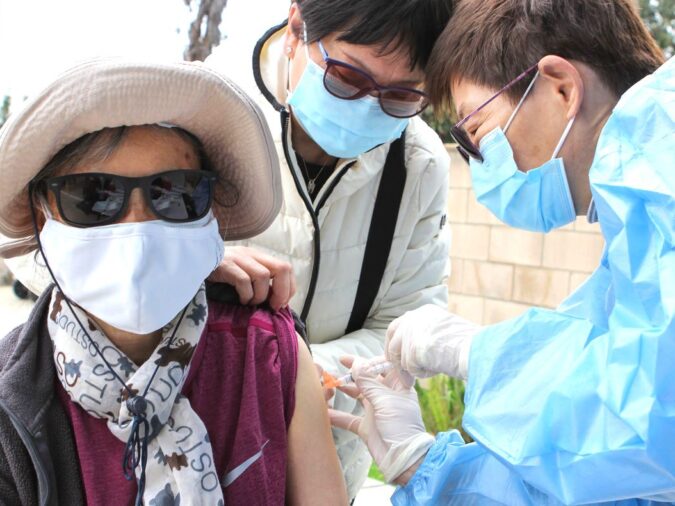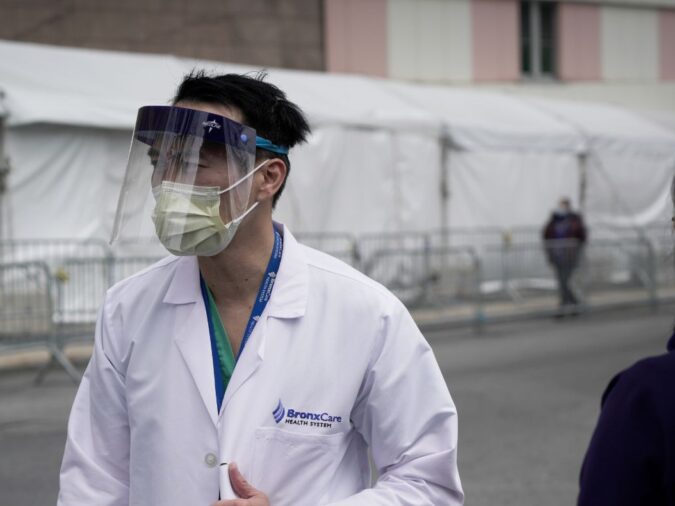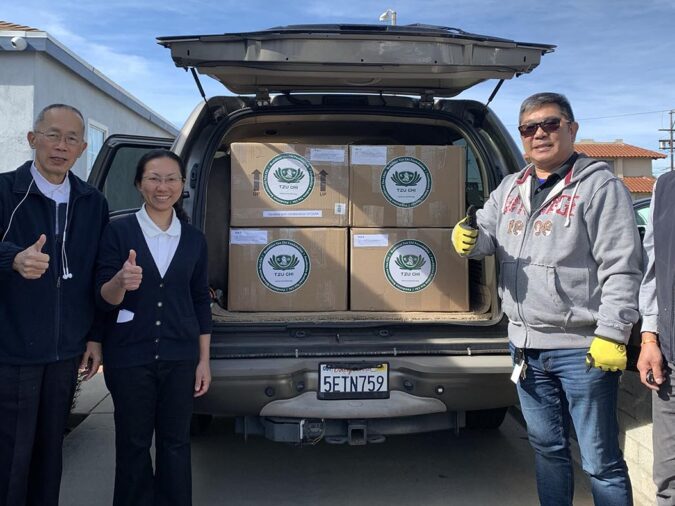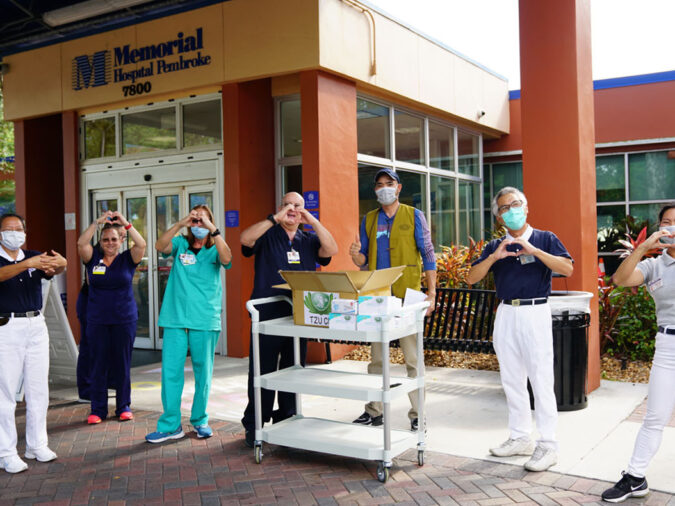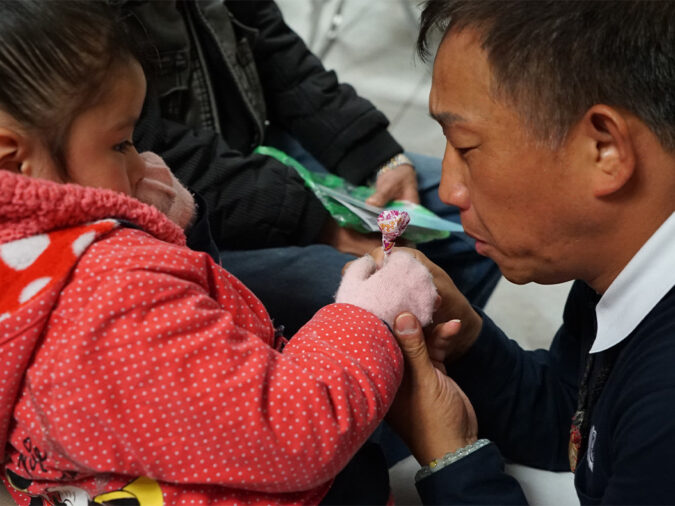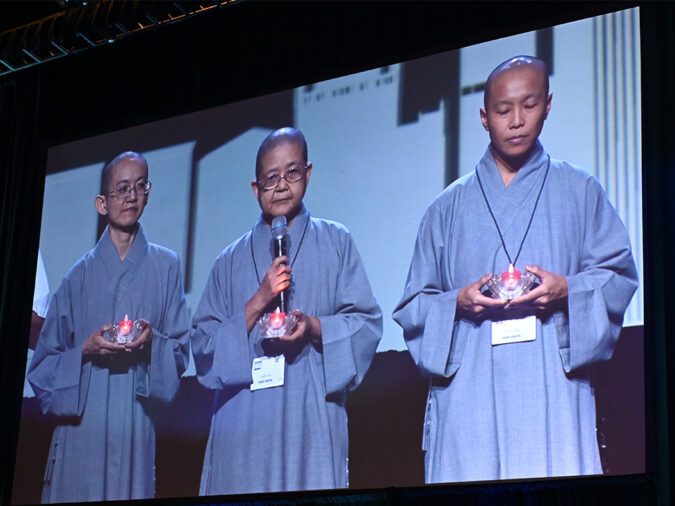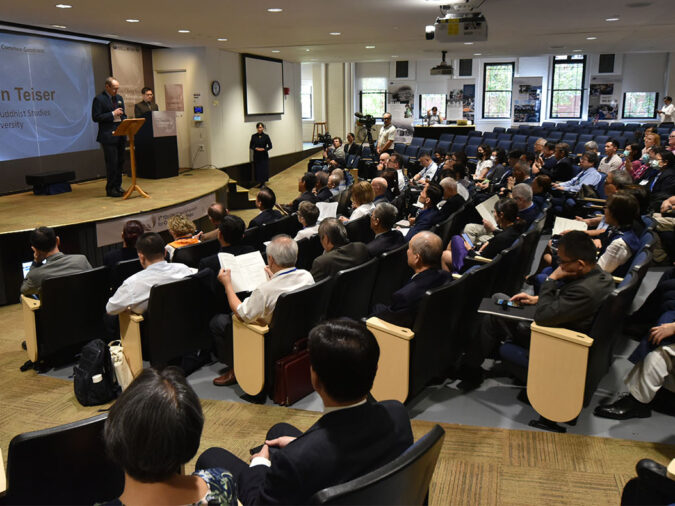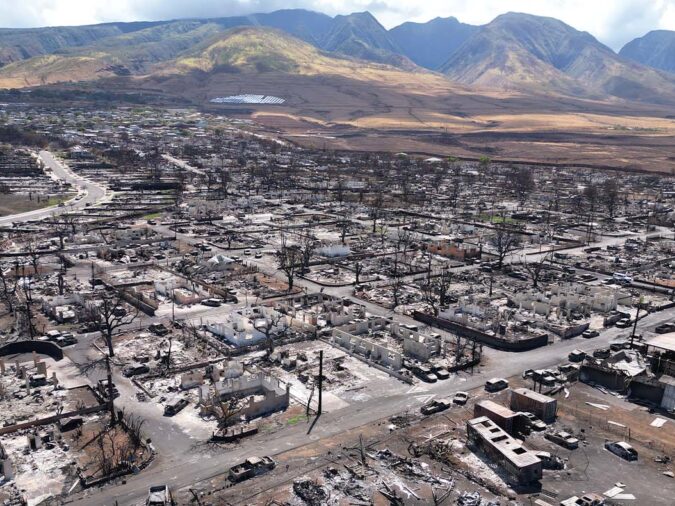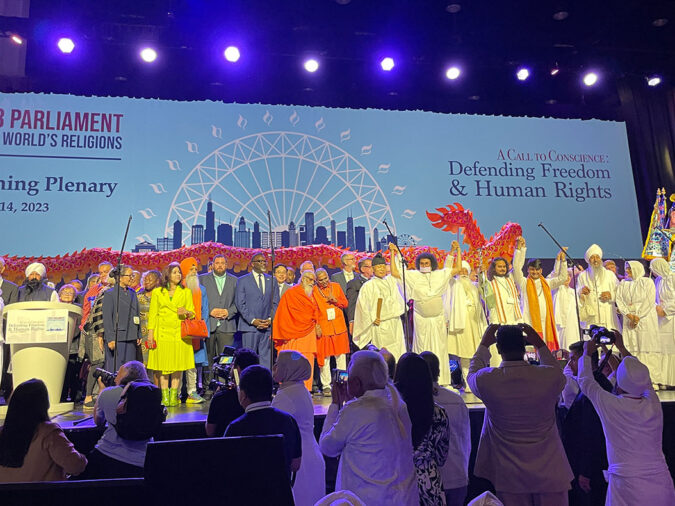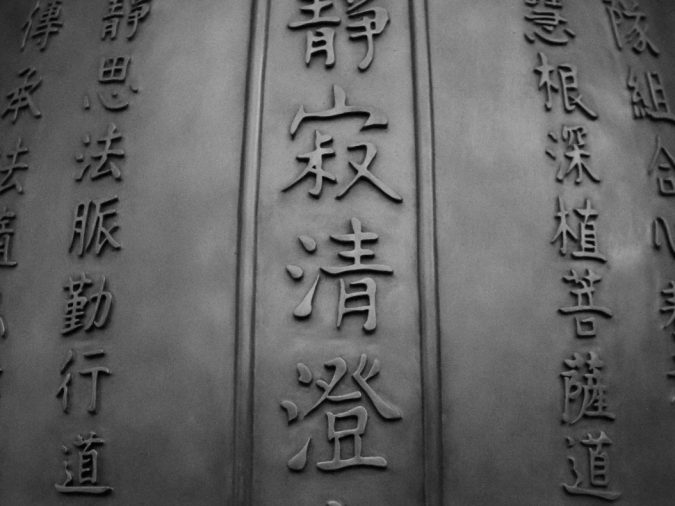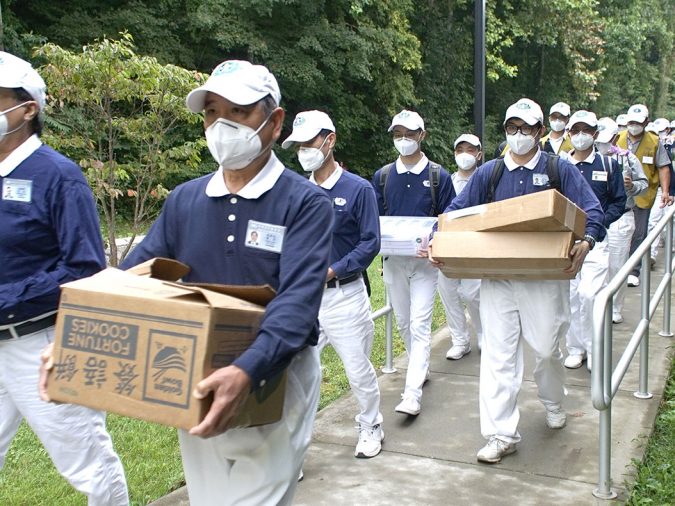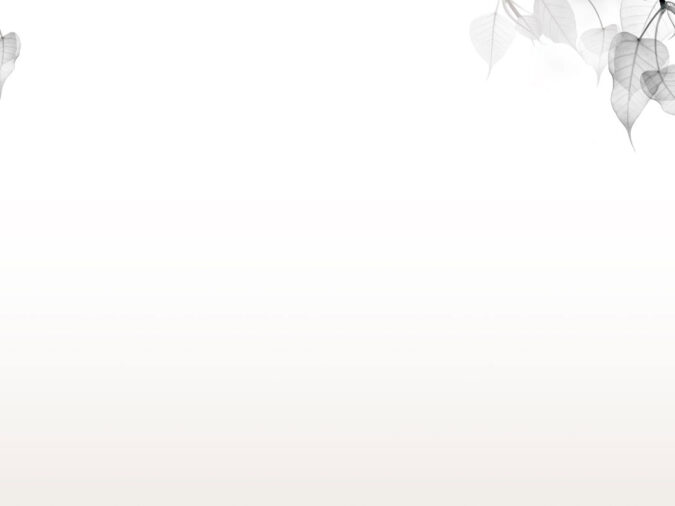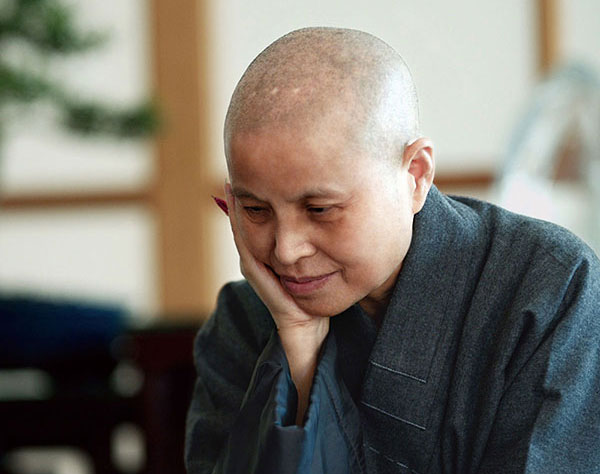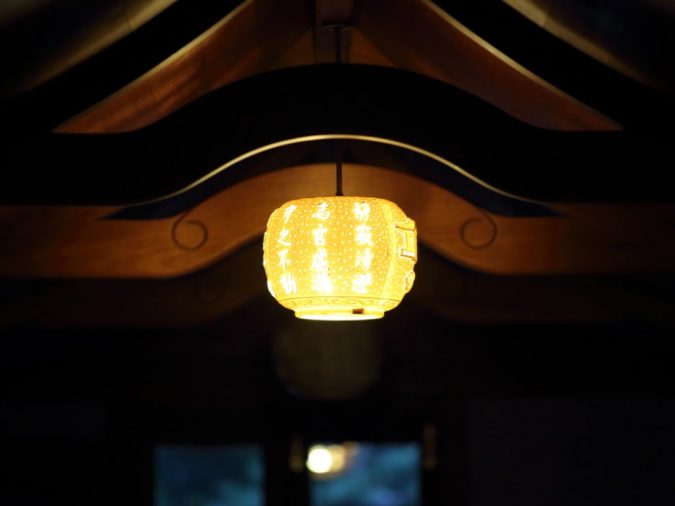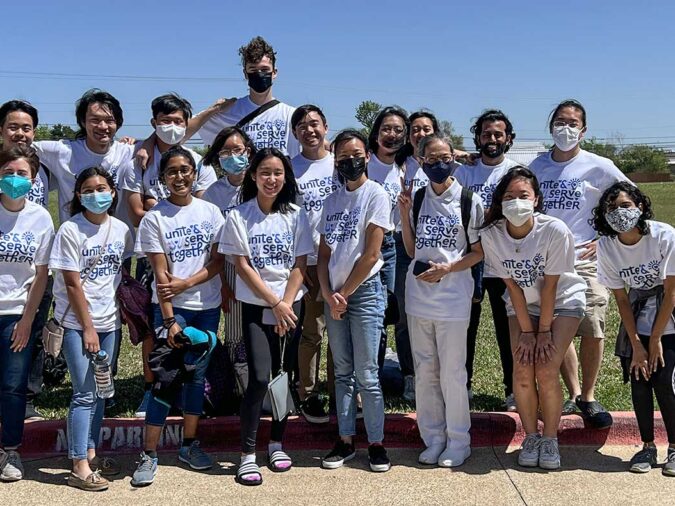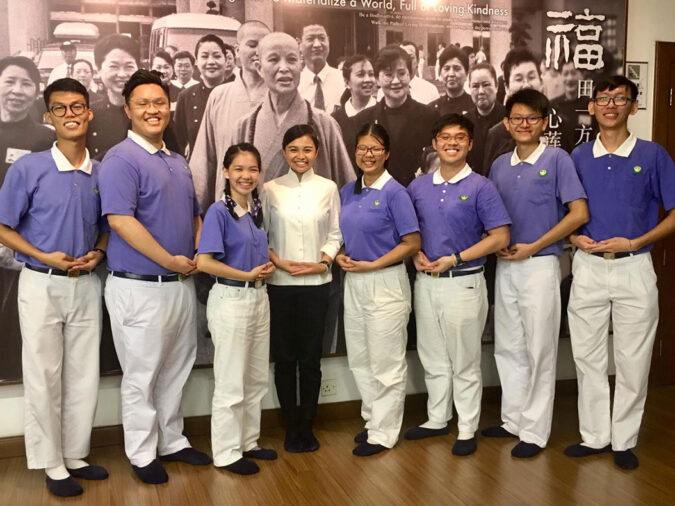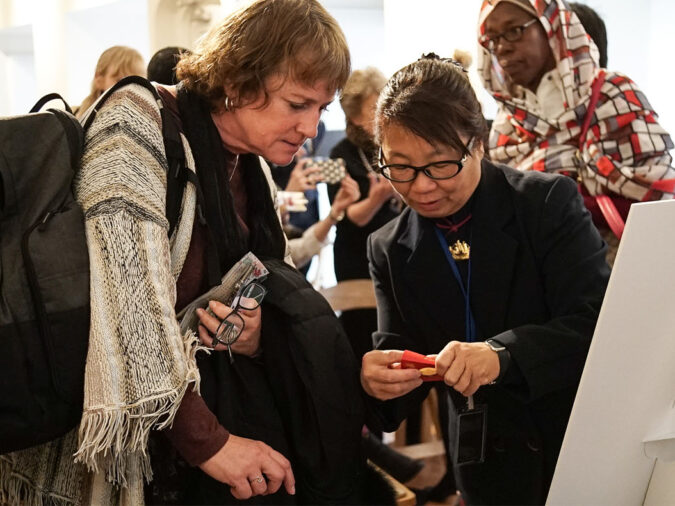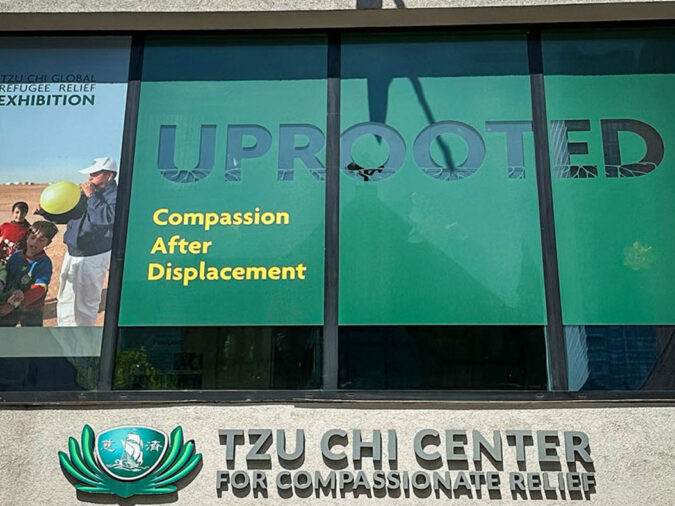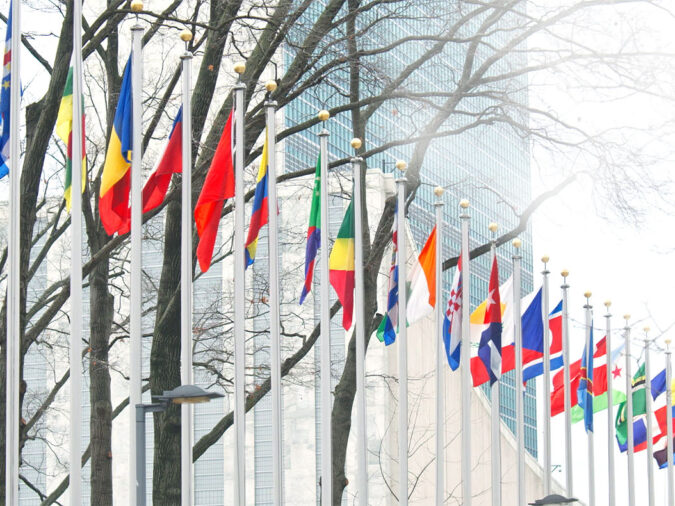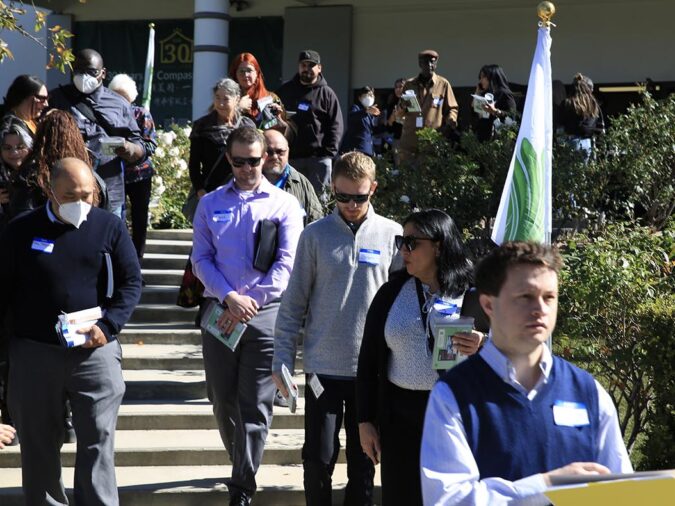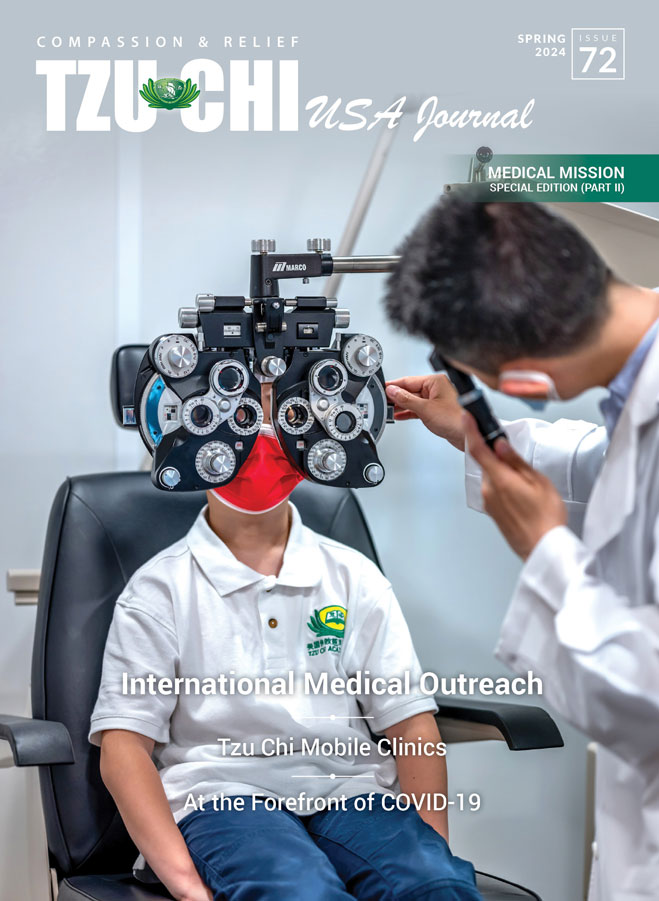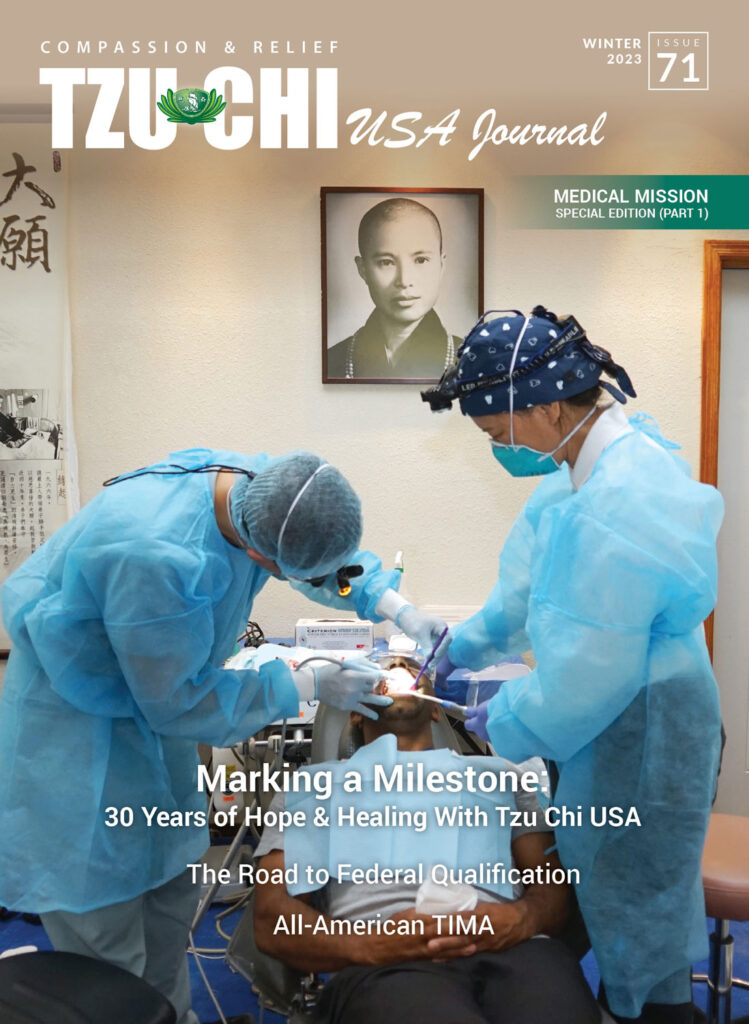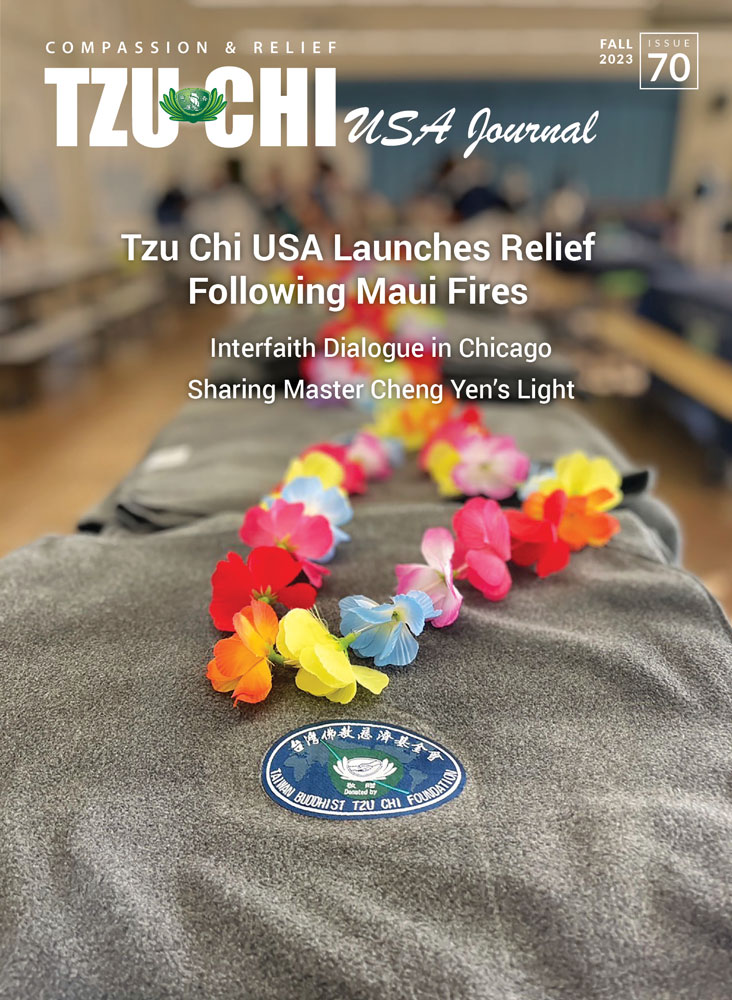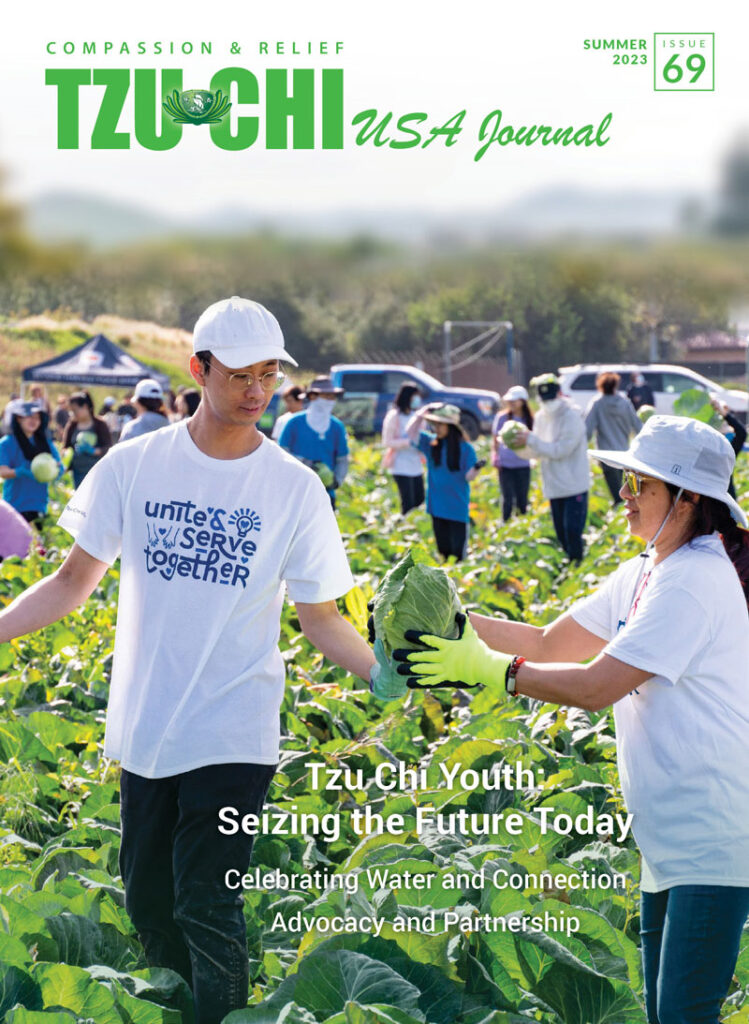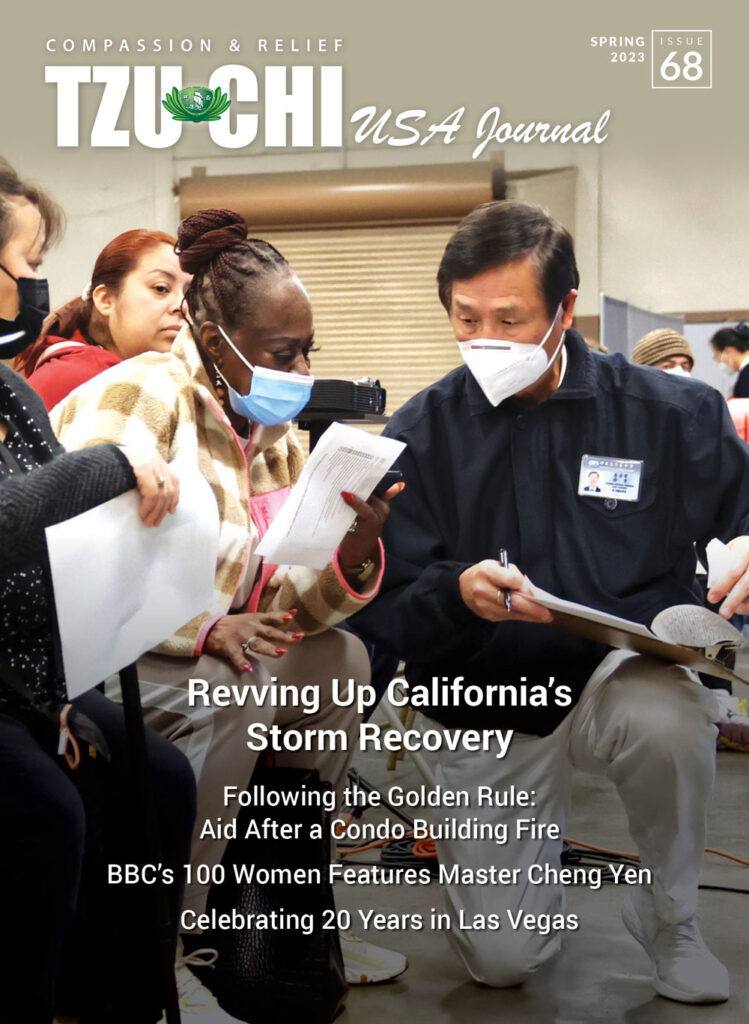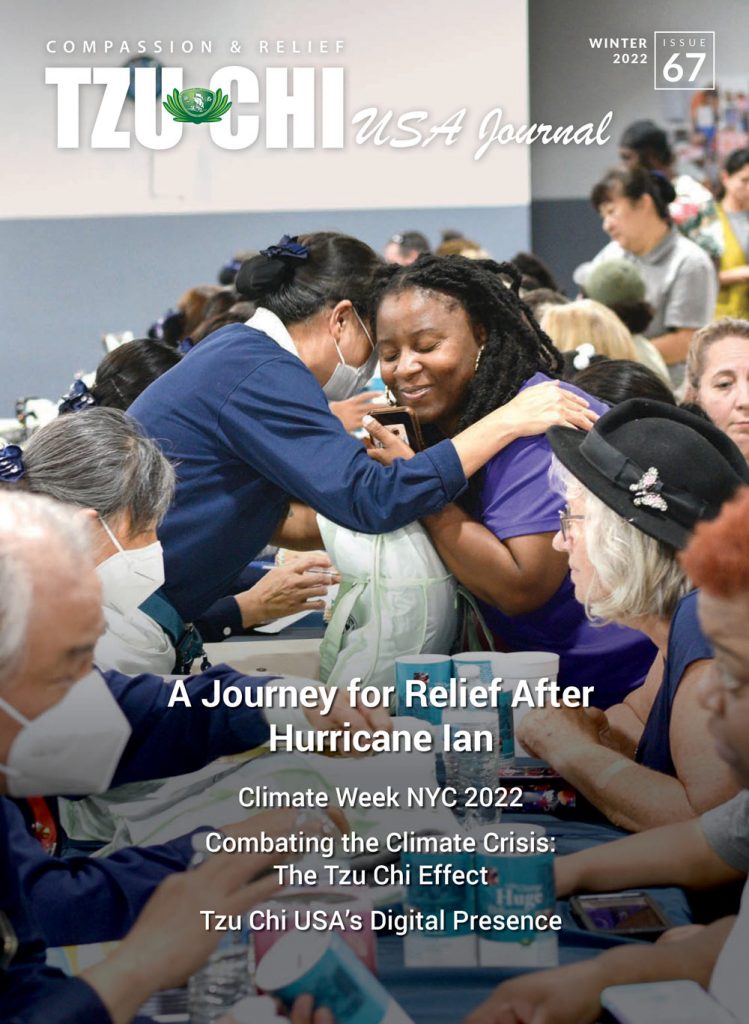CHAPTER 2
Alhambra Medical Clinics
Written by Audrey Cheng, Jennifer Chien, Lina Lin, and Pheel Wang
Published #71 | Winter 2024 Issue
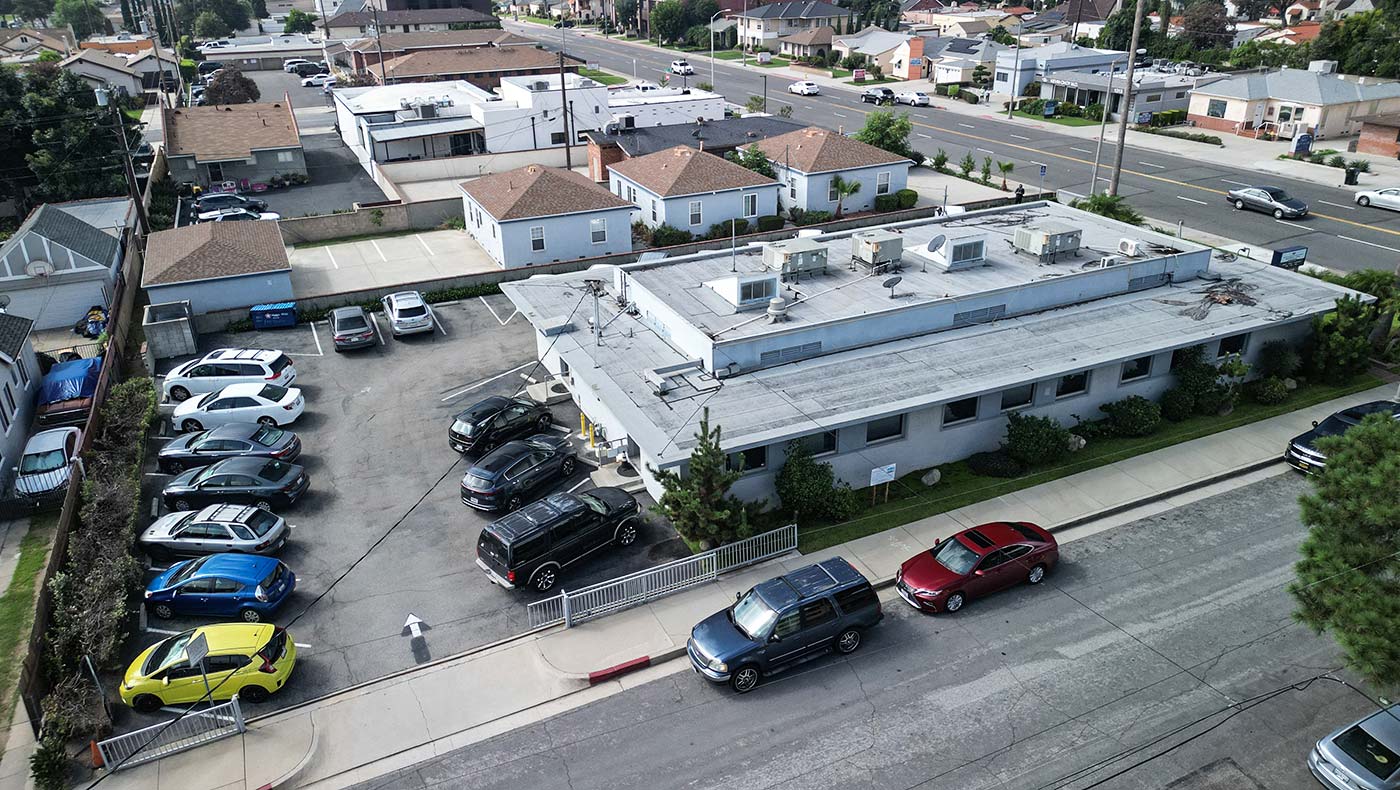
An aerial view of the Tzu Chi Health Center in Alhambra. Photo/Junji Hsu
SHARE
Near the location of the Free Clinic in Alhambra, California, there are many undocumented immigrant families without a home. These neighbors in need who typically don’t have access to health care can turn to the Tzu Chi Free Clinic when they fall ill. One local resident, Linda (a pseudonym), came down with a severe cold but felt self-conscious about her appearance. A volunteer noticed her outside and immediately knew she needed assistance. The volunteer greeted Linda and told her she was welcome at the clinic. She took her to the bathroom inside, pointed out the folded and clean clothes, and said gently, “Please take any clothes you like. There is no need to feel shy here.” Linda was overcome by her emotions when she realized she was in a place where she could be respected as a human being and where she could be treated for her illness with compassion.
Respect and Second-Hand Clothes
Everyone who comes to the Free Clinic is treated with humanity and care, regarded as more than a series of numbers on a medical record. This sense of dignity and respect helps patients feel reassured that they can confidently put themselves in the medical staff’s hands. “I like the service here because they make me feel relaxed, unlike in other hospitals, which make me nervous,” said a smiling woman surnamed Hu.
Chunhai Yin, who was treated at the Tzu Chi Free Clinic, is a deliveryman whose company does not pay for medical insurance. In August 2002, he often felt physically weak, exhausted, and with little appetite. In December, he went to the Free Clinic, where Dr. Eugene Taw gave him a detailed diagnosis, and he was immediately referred to the USC Hospital for tests that determined that he had colon cancer. After surgery and 12 rounds of chemotherapy, his cancer was in remission. “If it weren’t for Tzu Chi’s assistance, I wouldn’t have been able to escape from the clutches of death,” Chunhai Yin expressed.
During Hurricane Katrina in 2005, David Sandoval tragically lost his wife and daughter. The storm’s wrath had shattered his family and his business overnight. Traumatized and with immeasurable heartache, David and his surviving son moved to Los Angeles to start anew. However, he became physically ill. He found his way to the Free Clinic, where he received timely medical help and psychological counseling, and was later able to recover. He found a good job after his recovery and has attained a stable, comfortable living situation for himself and his son. He is grateful to Tzu Chi for reaching out to him at this most difficult time in his life when he needed help most, so that he could take the first step toward healing.
At Tzu Chi, we don’t look at your income. Whether a patient is rich or poor has nothing to do with us. Our goal is to save patients from their suffering.
Dr. Eugene Taw
Tzu Chi Free Clinic
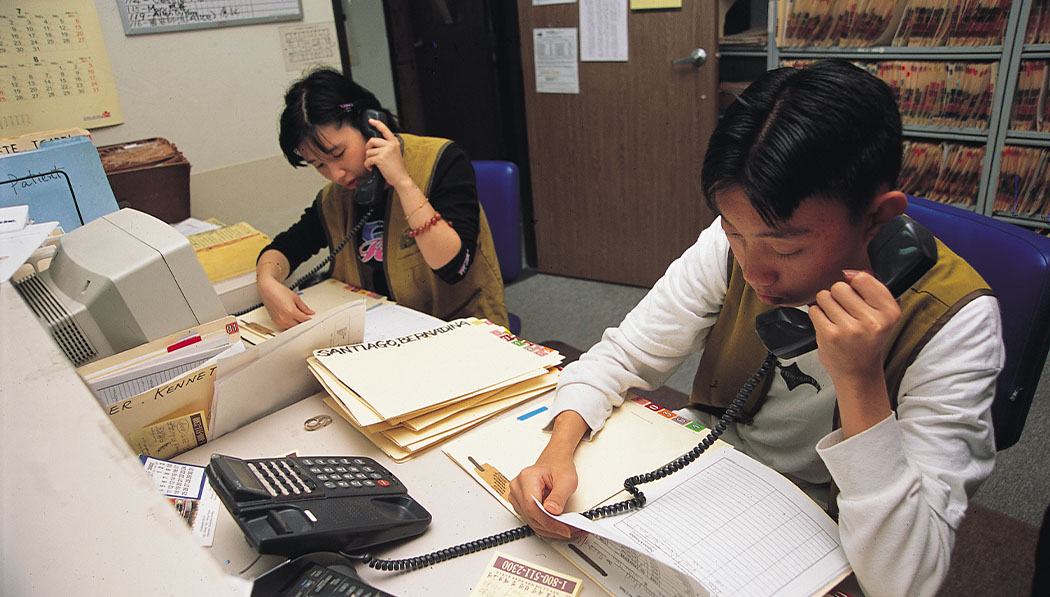
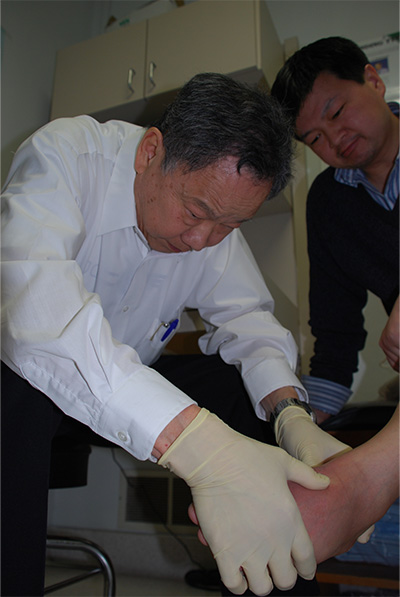
Dr. Taw is a Buddhist doctor from Myanmar whose expression always reveals his compassion. In his eyes, a patient is a person in need of help, and so he treats them with the kindness of a Bodhisattva, no matter their background.
Taw recounted a story that demonstrates his philosophy. “One of the volunteers told me that some patients came to get medicine for diabetes or high blood pressure but ended up selling the medicine. The volunteer was very upset and disappointed, thinking, how could these people take advantage like that? It made her not want to come back to help,” he said, continuing, “I told the volunteer not to think like that because the reason why we gave him the medicine was to help him, but he took that medicine and sold it, and that’s his business. Does he choose to take the medicine to control his diabetes, or is he going to sell it so he can buy food to feed his family? Master Cheng Yen created Tzu Chi so that we can have the opportunity to do good deeds, and we should help those who need to be helped. A Burmese Master said the same thing: ‘When we give something, once it leaves our hands, what others want to do with it is their decision.’”
When visited by this patient, Dr. Taw also chose not to expose his knowledge of it. “I certainly won’t tell people that they are being greedy. I would say that this is a three-month supply for you, and the rest of the medicine needs to be used for other patients,” he explained.
Based on its Buddhist origins, Tzu Chi’s medical mission aims to treat any patient in need. The mission works nationwide, across diverse communities, with people from all across the globe. This call to serve everyone includes many patients who are not English speakers. Despite potential barriers in language one might face, the Tzu Chi medical staff can still readily address one’s needs. Tung Cheung, PA, a doctor who has a long line of patients daily, speaks fluent Spanish. He talks with patients in Spanish to understand their situation, and explains treatment results and the follow-up notes in Spanish as well. Describing the sometimes complicated medical vocabulary with such ease, one might think he grew up in a predominantly Spanish-speaking country.
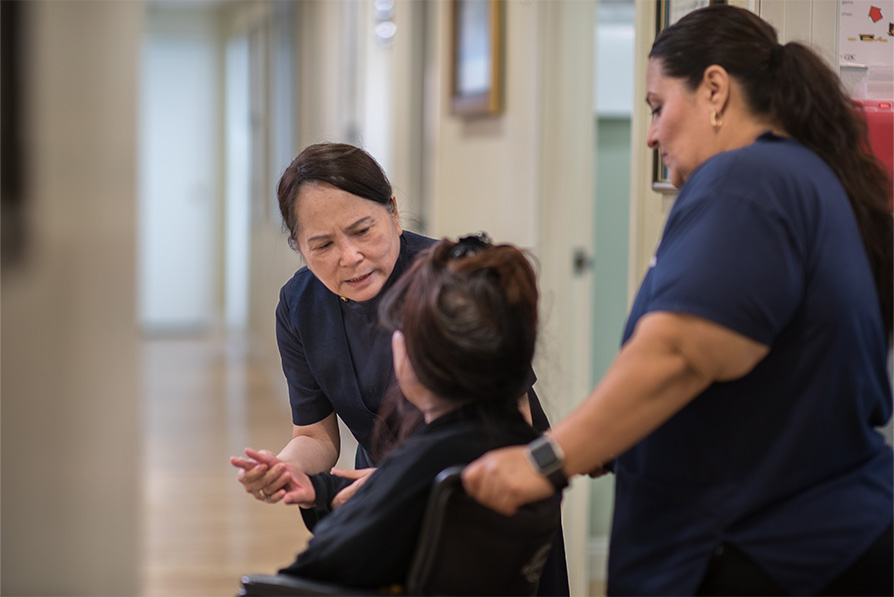
The Free Clinic in Alhambra regularly organizes Spanish language courses for its medical team. The team learns and practices whenever they get the chance — even during their lunch breaks and after work. Though they work long, hard days, the volunteers still study diligently in these courses so they can better serve patients who visit the clinic.
One of the Free Clinic’s Chinese patients, Qihua Zhao, speaks Spanish. She was touched by Tzu Chi’s medical staff and volunteered to be a translator at the free clinic, later volunteering to be the medical staff’s Spanish language teacher, too. She started with simple daily conversations to help the medical team serve more people. “If I go and interpret, I can only be there for one doctor, but if I teach the medical staff, they can see the patient on their own,” Zhao said.
In 2013, the Free Clinic in Alhambra began preparing to apply for federal qualification at the suggestion of Debra Boudreaux, the current CEO of Tzu Chi USA. The goal was to become a community clinic, and eventually, a health center with FQHC status.
